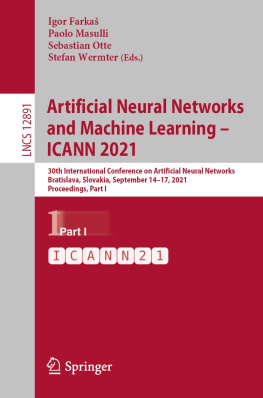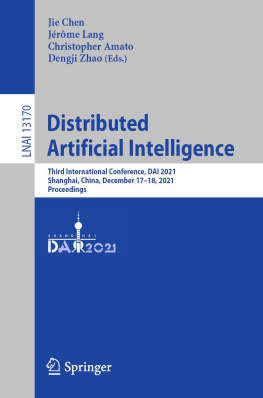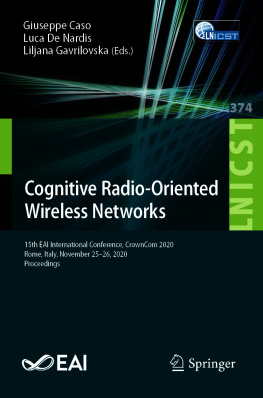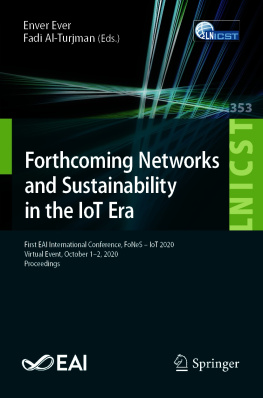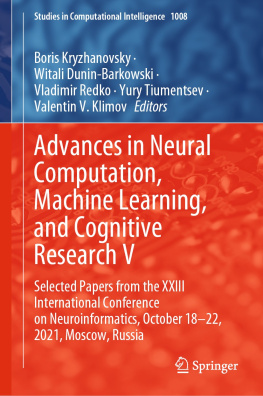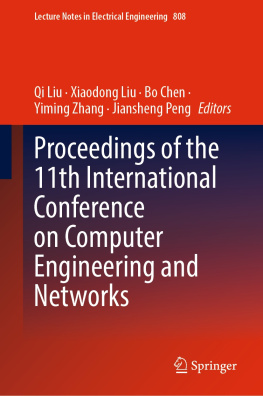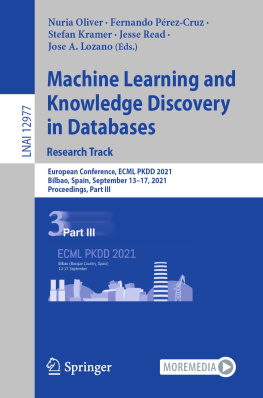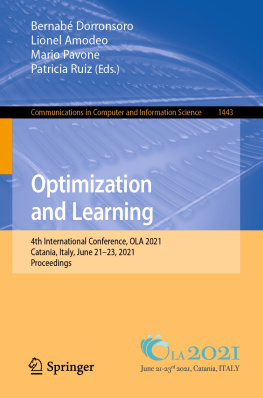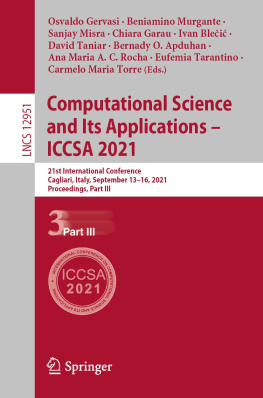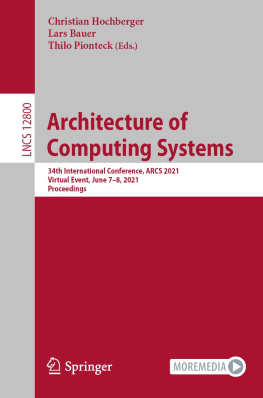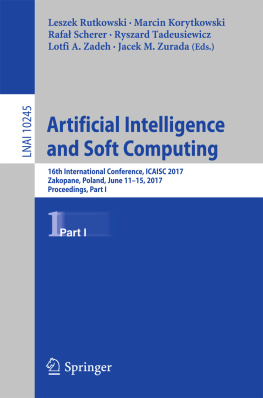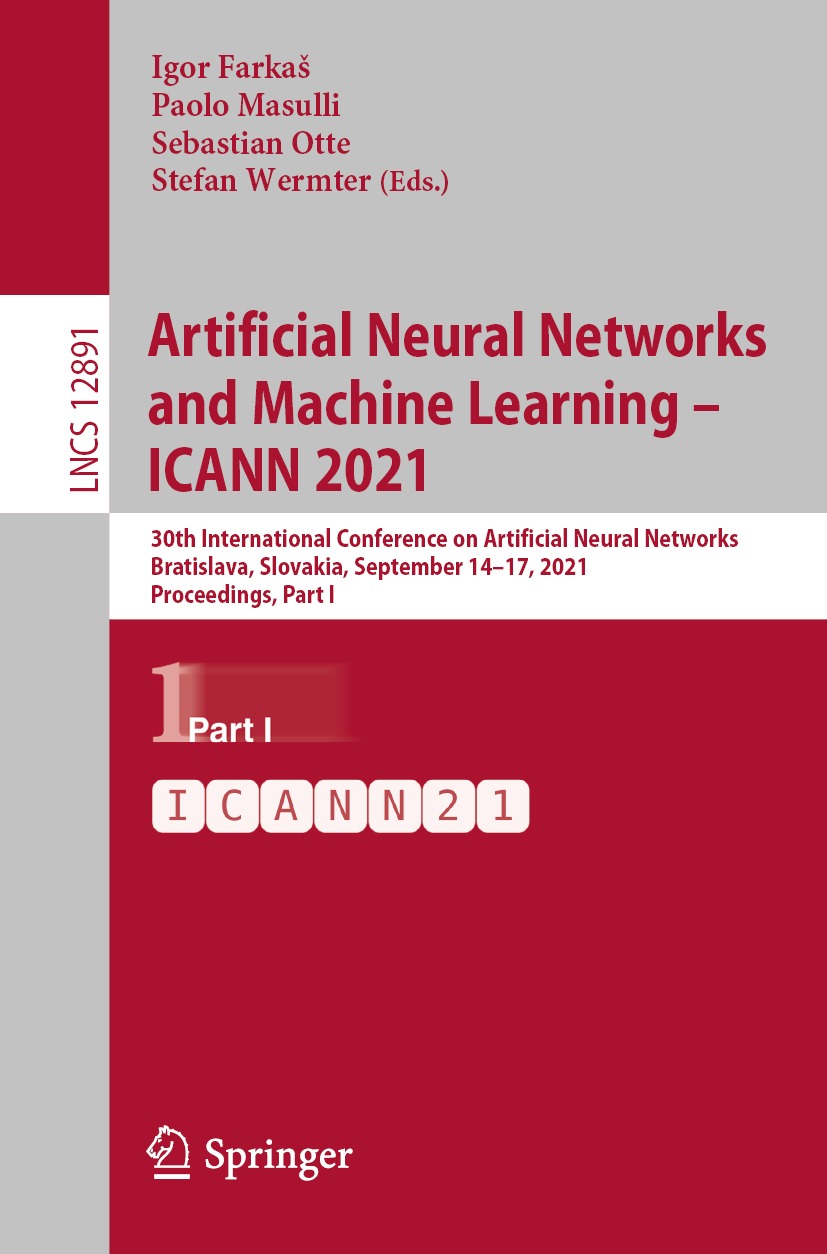Volume 12891
Lecture Notes in Computer Science Theoretical Computer Science and General Issues
Editorial Board
Elisa Bertino
Purdue University, West Lafayette, IN, USA
Wen Gao
Peking University, Beijing, China
Bernhard Steffen
TU Dortmund University, Dortmund, Germany
Gerhard Woeginger
RWTH Aachen, Aachen, Germany
Moti Yung
Columbia University, New York, NY, USA
Founding Editors
Gerhard Goos
Karlsruhe Institute of Technology, Karlsruhe, Germany
Juris Hartmanis
Cornell University, Ithaca, NY, USA
More information about this subseries at http://www.springer.com/series/7407
Editors
Igor Farka , Paolo Masulli , Sebastian Otte and Stefan Wermter
Artificial Neural Networks and Machine Learning ICANN 2021
30th International Conference on Artificial Neural Networks, Bratislava, Slovakia, September 1417, 2021, Proceedings, Part I
1st ed. 2021

Logo of the publisher
Editors
Igor Farka
Comenius University in Bratislava, Bratislava, Slovakia
Paolo Masulli
iMotions A/S, Copenhagen, Denmark
Sebastian Otte
University of Tbingen, Tbingen, Baden-Wrttemberg, Germany
Stefan Wermter
Universitt Hamburg, Hamburg, Germany
ISSN 0302-9743 e-ISSN 1611-3349
Lecture Notes in Computer Science Theoretical Computer Science and General Issues
ISBN 978-3-030-86361-6 e-ISBN 978-3-030-86362-3
https://doi.org/10.1007/978-3-030-86362-3
Springer Nature Switzerland AG 2021
This work is subject to copyright. All rights are reserved by the Publisher, whether the whole or part of the material is concerned, specifically the rights of translation, reprinting, reuse of illustrations, recitation, broadcasting, reproduction on microfilms or in any other physical way, and transmission or information storage and retrieval, electronic adaptation, computer software, or by similar or dissimilar methodology now known or hereafter developed.
The use of general descriptive names, registered names, trademarks, service marks, etc. in this publication does not imply, even in the absence of a specific statement, that such names are exempt from the relevant protective laws and regulations and therefore free for general use.
The publisher, the authors and the editors are safe to assume that the advice and information in this book are believed to be true and accurate at the date of publication. Neither the publisher nor the authors or the editors give a warranty, expressed or implied, with respect to the material contained herein or for any errors or omissions that may have been made. The publisher remains neutral with regard to jurisdictional claims in published maps and institutional affiliations.
This Springer imprint is published by the registered company Springer Nature Switzerland AG
The registered company address is: Gewerbestrasse 11, 6330 Cham, Switzerland
Preface
Research on artificial neural networks has progressed over decades, in recent years being fueled especially by deep learning that has proven, albeit data-greedy, efficient in solving various, mostly supervised, tasks. Applications of artificial neural networks, especially related to artificial intelligence, affect our lives, providing new horizons. Examples range from autonomous car driving, virtual assistants, and decision support systems to healthcare data analytics, financial forecasting, and smart devices in our homes, just to name a few. These developments, however, also provide challenges, which were not imaginable previously, e.g., verification of raw data, explaining the contents of neural networks, and adversarial machine learning.
The International Conference on Artificial Neural Networks (ICANN) is the annual flagship conference of the European Neural Network Society (ENNS). Last year, due to the COVID-19 pandemic, we decided not to hold the conference but to prepare the ICANN proceedings in written form. This year, due to the still unresolved pandemic, the Organizing Committee, together with the Executive Committee of ENNS decided to organize ICANN 2021 online, since we felt the urge to allow research presentations and live discussions, following the now available alternatives of online conference organization. So for the first time, ENNS and the Organizing Committee prepared ICANN as an online event with all its challenges and sometimes unforeseeable events!
Following a long-standing successful collaboration, the proceedings of ICANN are published as volumes within the Lecture Notes in Computer Science Springer series. The response to this years call for papers resulted, unexpectedly, in a record number of 557 article submissions (a 46% rise compared to previous year), of which almost all were full papers. The paper selection and review process that followed was decided during the online meeting of the Bratislava organizing team and the ENNS Executive Committee. The 40 Program Committee (PC) members agreed to check the submissions for the formal requirements and 64 papers were excluded from the subsequent reviews. The majority of the PC members have doctoral degrees (80%) and 75% of them are also professors. We also took advantage of filled-in online questionnaires providing the reviewers areas of expertise. The reviewers were assigned one to four papers, and the papers with undecided scores also received reports from PC members which helped in making a final decision.
In total, 265 articles were accepted for the proceedings and the authors were requested to submit final versions. The acceptance rate was hence about 47% when calculated from all initial submissions. A list of PC members and reviewers who agreed to publish their names is included in the proceedings. With these procedures we tried to keep the quality of the proceedings high while still having a critical mass of contributions reflecting the progress of the field. Overall we hope that these proceedings will contribute to the dissemination of new results by the neural network community during these challenging times and we hope that we can have a physical ICANN in 2022.
Finally, we very much thank the Program Committee and the reviewers for their invaluable work.
Igor Farka
Paolo Masulli
Sebastian Otte
Stefan Wermter
September 2021
Organization
Organizing Committee
Cabessa Jrmie
Universit Paris 2 Panthon-Assas, France
Kerzel Matthias
University of Hamburg, Germany
Lintas Alessandra
University of Lausanne, Switzerland
Malinovsk Kristna
Comenius University in Bratislava, Slovakia
Masulli Paolo
iMotions A/S, Copenhagen, Denmark
Otte Sebastian
University of Tbingen, Germany
Wedeman Roseli
Universidade do Estado do Rio de Janeiro, Brazil
Program Committee Chairs
Igor Farka
Comenius University in Bratislava, Slovakia
Paolo Masulli
iMotions A/S, Denmark
Sebastian Otte
University of Tbingen, Germany
Stefan Wermter
University of Hamburg, Germany
Program Committee
Andrejkov Gabriela
Pavol Jozef afrik University in Koice, Slovakia

